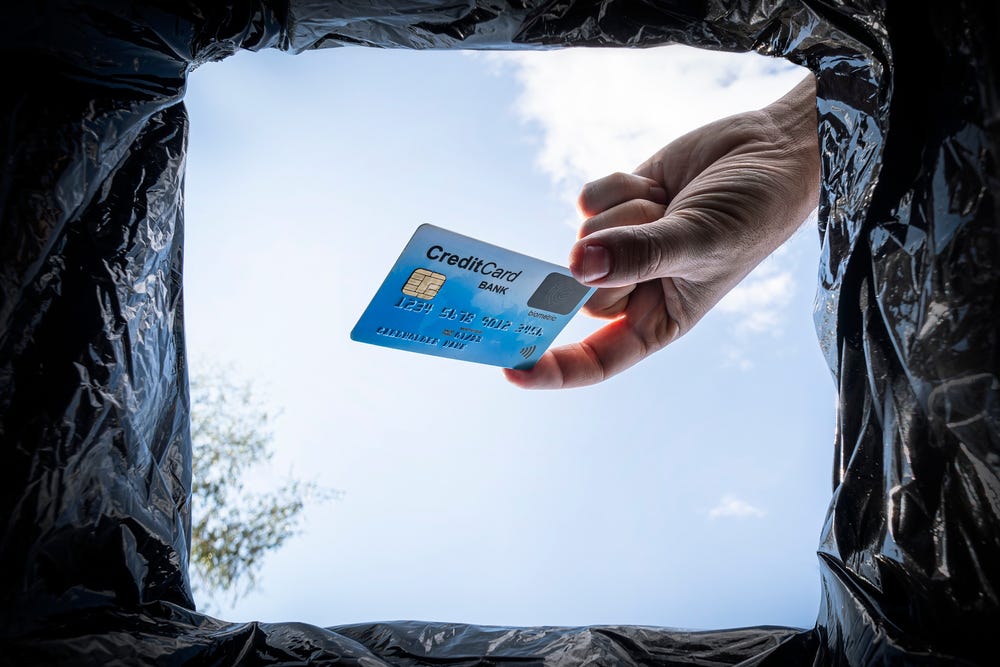Vermont gives sports betting the nod
Vermont sports betting, Australian credit card block, Merkur Casino fine, Sweden rogue payments move, IBAS bids for UK status +More
Good morning. On today’s agenda:
Vermont poised to give the Northeast a clean sweep.
Australia to block credit cards.
Merkur Casino fined for exclusion list flub.
Sweden targets rogue payment processors.
The ‘oven-ready’ gambling ombudsman in the UK.
Not all conferences are dull…
Telegraph cables, they sing down the highway.
Vermont approval
Sports betting moves a step closer after senate approval.
Welcome to the party, pal: Vermont is on the precipice of becoming the 39th state (plus the District of Columbia) to legalize sports betting, thereby completing a clean sweep of Northeast states for legal sports betting.
Great Scott: The Vermont Senate passed a modestly amended version of a bill (H 127), which was previously given the nod by the House in March. Sources universally believe the House will concur and pass the amended version from the Senate and Gov. Phil Scott will sign the bill, considering his recent support of legal sports betting.
Nuts and bolts: Vermont’s OSB bill has an interesting structure, because the state lacks land-based gambling that it could tether licenses to. The basics of the bill are as follows:
Mobile-only and run through the Department of Liquor and Lottery, which will negotiate revenue-sharing rates with applicants.
Two to six operators will receive a license following an RFP process similar to New York. The state expects to approve 2-3 operators.
Per the bill, the minimum revenue-sharing rate is 20%.
The licensing cost (which was amended by the Senate) is $500,000 in Year 1. Annual renewal rates are determined by the number of operators and range from $320,833 if there are six operators to $412,500 if there are two operators.
The bill sets aside $250,000 for problem gambling in FY2024. The industry’s obligation jumps to $550,000 annually in Year 2 and beyond.
Advertising limits will be negotiated with each applicant.
Terms like ‘risk-free’ and ‘free’ are prohibited.
Should the bill pass, a regulatory timeline points to an early 2024 launch.
A clean OSB sweep: As noted, Vermont is the final Northeast state to legalize sports betting and, like the other sports-betting states in the region, Vermont will be an OSB jurisdiction. The Northeast is by far the most OSB-friendly region in the country.
New York
New Jersey
Pennsylvania
Massachusetts
Connecticut
Maine
New Hampshire
Rhode Island
Vermont (pending)
It’s not a competition, but… Even if you add the Mid-Atlantic states Delaware and Maryland to the Northeast’s record, the region is still 10 for 11 on OSB. By comparison:
The South and South Atlantic are 6 for 14.
The Midwest is 6 for 12.
The West is 5 for 13.
** SPONSOR’S MESSAGE ** Tried, tested and proven over a decade in the highly-regulated US market, and continuing to expand across Europe, Latin America, Asia and Africa. GeoComply harnesses the power of its market-leading geolocation technology to protect against fraud, including fake account creations, bonus abuse, account takeovers, stolen identities, money laundering, and more. Visit geocomply.com.
Australian credit card ban
Australia’s federal government is gearing to ban gamblers from using credit cards for online wagering.
Hit the block: The Interactive Gambling Act 2001 will be updated to include the amendments, which will also be tweaked to boost the enforcement powers of the Australian Communications and Media Authority.
Around 20% of online deposits are made with credit cards, the government estimates.
“People should not be betting with money they do not have,” said communications minister Michelle Rowland.
The aim is to bring the online sphere in line with land-based gambling, which has limits in place, Rowland said.
The plans were first mooted in 2021 following a parliamentary enquiry.
BINNED off: A forthcoming consultation will flesh out the technical details, but early signs are that Bank Identification Numbers (BINs) will be used to identify and bar credit card payments.
“Blocking BINs has been successfully deployed by Australian casinos and poker machine venues to stop credit card withdrawals from ATMs and was used in the United Kingdom to implement its credit card ban for online gambling,” Rowland said.
A parliamentary committee on social policy is conducting an inquiry into online gambling, which will also soon make further recommendations for the government.
Merkur fine
Merkur Casino Almere has been fined €45,000 for allowing an excluded gambler inside its venue multiple times.
9 to fine: Between February 17, 2022 and March 2, 2022, a person registered in the Central Register Exclusion of Gambling (Cruks), which lists individuals barred from betting, freely accessed the casino on nine occasions.
When checking the database, casino staff received an error message and could not verify whether the individual was registered in the system.
“On that basis, access to the casino should have been denied to the person,” the Dutch gambling authority Kansspelautoriteit (KSA) said.
Merkur was warned against a repeat of the incident.
The KSA has handed out more than €9m in fines this year so far.
Sweden goes after rogues
Sweden’s government wants the country’s gambling and financial services regulators to get to know each other better.
Swede harmony: Closer collaboration between Spelinspektionen, which monitors gaming, and the Financial Supervisory Authority (Finansinspektionen) will make blocking payments from unlicensed operators easier and help stop other monetary wrongdoing, lawmakers said.
New regulatory powers were handed to Spelinspektionen earlier this year, with more to come over the coming months.
The regulatory tweaks force payment providers in the country to provide information about the payments they process in order to bar offshore operators.
Operators targeting the Swedish market without a license will have their payment processors shut off.
Spelinspektionen may conduct test purchases of gambling products, it said.
Last month, the government committed to greater funding of the gambling regulator.
IBAS of the beholder
IBAS offers a ‘ready-made ombudsman solution’ if the government were minded.
Ready, steady, go: The UK White Paper published last week said that the government wanted to establish an ombudsman for gambling as soon as possible, with the process of appointing it commencing this summer and for it to be up and running “within a year”.
However, it was a bit vague as to what the ombudsman would look like in terms of structure and status.
The paper said that the current alternative dispute resolution (ADR) providers and the Gambling Commission receive around 2,000 complaints a year concerning social responsibility, gambling harm and safer gambling.
It pointed out that most of those complaints fall outside of the ADR providers’ remits and that, while the GC uses the complaints to inform its investigative work, it is unable to order operators to pay customers compensation.
That means the only redress available to some complainants is through the courts. Fines levied by the GC on operators are paid to the Exchequer not the consumers affected by the operators’ negligence.
The White Paper considers two options for the establishment of an ombudsman: a new arms-length body with the statutory powers to order redress or increasing the powers and scope of an existing ADR provider.
The largest existing ADR provider is the Independent Betting Adjudication Service (IBAS). It received 860 complaints relating to social responsibility and self-exclusion in 2021/22, of which it refused 539 cases on the grounds that they were regulatory matters and therefore outside of its remit.
Last year IBAS set out its stall to become the new ombudsman, detailing a governance framework, an expanded remit and costings.
It said it would increase its head count from 11 to 24 and the new body would cost £3.5m per annum to run, with £1m needed for transition costs.
It pointed out that it already handles over 80% of all UK gambling complaints and has dealt with more than 85,000 complaints since it was established in 1988.
Given the sense of urgency stated in the White Paper, it would appear that IBAS is in pole position to transition into the role of ombudsman and it is understood that it has approached the government and the Gambling Commission to seek further clarification on the requirements of the new service.
Black-tie collars felt
A famed high roller, a bank chairman and more than 90 others were arrested at an illegal gambling bash inside a conference room at the Asia Pattaya Hotel.
Too many clues in this room: Officers stormed the Thai hotel just after midnight on Monday, May 2, after a tip off that a group of Indian nationals had booked rooms and a meeting center to play baccarat and blackjack.
Cops found the equivalent of a few thousand dollars, eight closed-circuit television cameras, 92 mobile phones, three notebook computers, one iPad and a gambling credit logbook.
The logbook indicated that approximately $12m worth of credits were in play.
Players attempted to flee on seeing police, but were all apprehended.
Six Thai nationals and four Burmese, reportedly the game organizers and staff, were also arrested.
Goa directly to jail: Among those in cuffs were local whale Chikoti “PC” Praveen Kumar, whose Telangana properties have been raided and seized over the past year.
PC is accused of organizing high-stakes gambling trips for Indian celebrities and millionaires in Thailand, Nepal and Indonesia.
Also arrested was one of his aides, who is also under investigation, and the chairman of an Indian bank.
He is currently the top suspect in an investigation by India’s Enforcement Directorate and allegedly runs a floor at the Big Daddy floating casino in Goa.
The Thai Public Broadcasting Service said the gamblers bet over ₹500m ($6.1m) each day, with their illegal casino punting livestreamed to India.
Thailand has said Pattaya, Bangkok and Phuket will eventually have legal casinos, but not soon enough for PC and his friends.
** SPONSOR’S MESSAGE** BettingJobs is the global leading recruitment solutions provider to the iGaming, Sports Betting and Lotteries sectors. Boasting a 20-year track record supporting the iGaming industry, and with a team of experts and world class knowledge, it’s no surprise BettingJobs is experiencing rapid growth with outstanding results. Does your company have plans to expand teams to cope with strong growth and demand?
Contact BettingJobs.com today where their dedicated team members will help you find exactly what you are looking for.
M&A notebook
GeoComply has bought fellow Vancouver-based compliance solutions provider OneComply for an undisclosed amount. The 14 employee-strong OneComply is led by co-founder and CEO Cameron Conn and CTO Aaron Gould. See Earnings+More yesterday for more.
Sports-betting integrity
Iowa: The Iowa Racing and Gaming Commission has launched an investigation regarding potentially criminal conduct related to sports wagering on University of Iowa and Iowa State games.
Event calendar
May 9: SBC North America Player Protection Symposium
May 18: Gaming in Spain, Madrid
An +More Media publication.
For sponsorship inquiries email scott@andmore.media.










